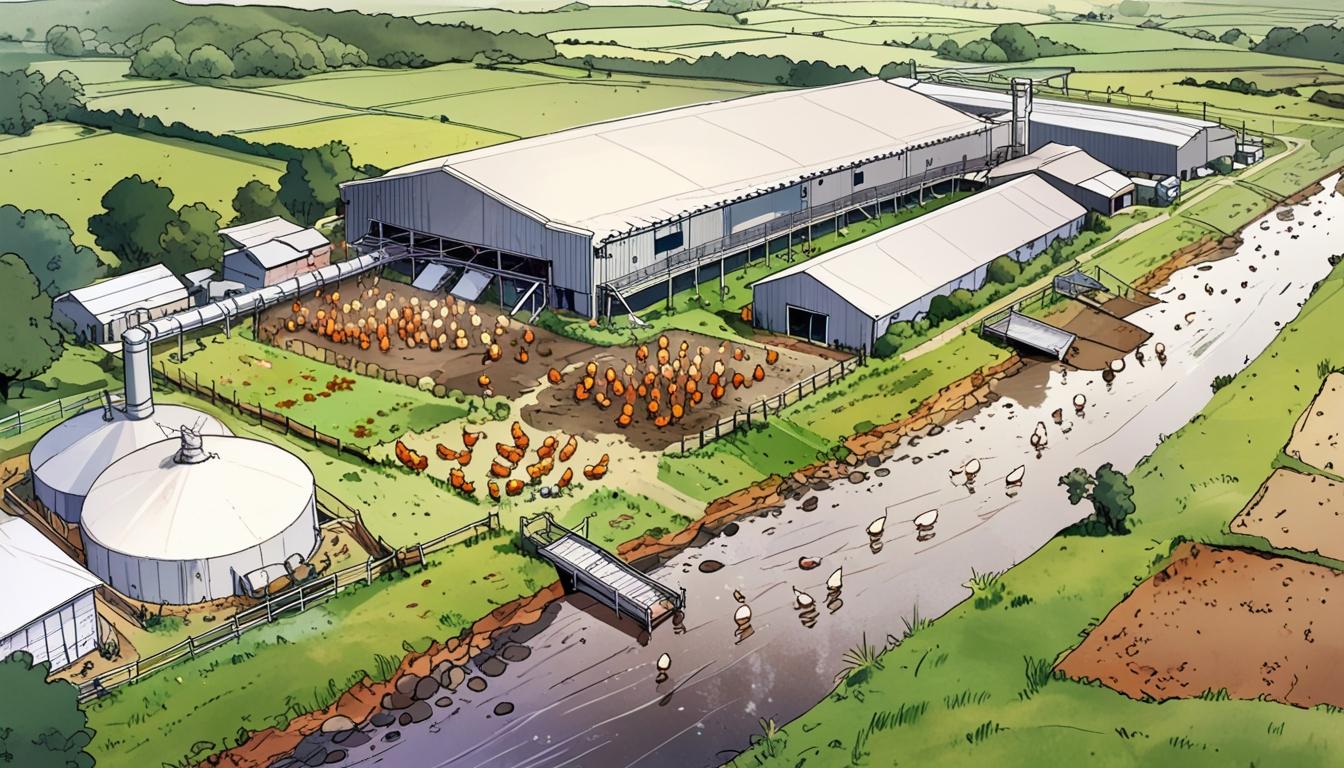Clean river campaigners have brought a legal challenge against Shropshire council’s decision to grant planning permission for an expansive poultry megafarm near Shrewsbury. The high court in Cardiff heard on Wednesday that the council failed to consider all environmental impacts associated with the industrial chicken units, which will have the capacity to house 230,000 birds at any one time. The challenge, spearheaded by Dr Alison Caffyn and supported by environmental group River Action, questions the sustainability and environmental consequences of permitting such a large-scale intensive poultry operation in the region.
Dr Caffyn’s judicial review argues that the rapid expansion of intensive factory farming across Shropshire, characterised by the rise of large intensive poultry units (IPUs), is having a detrimental effect on the local environment. She highlighted concerns about the impact of spreading vast quantities of chicken manure on surrounding land, emphasising that the manure’s high phosphate content is a major contributor to river pollution. Phosphates can deplete oxygen in waterways, adversely affecting fish and plant life. According to her submitted court documents, Shropshire now supports nearly 65 chickens for every resident, a ratio that raises significant environmental sustainability issues.
The counties of Shropshire, Herefordshire, and Powys together house more than 50 million chickens at any given time – a figure imposing substantial strain on the neighbouring rivers Wye and Severn, both of which suffer from nutrient pollution. Dr Caffyn noted, “The phosphorus and nitrogen pollution, particularly from ammonia gas, is degrading many protected environmental sites.” She characterised the council’s approval of the megafarm as part of a broader “reckless and unsustainable” approach to intensive farming in the area, contrasting with the more regulated positions of Powys and Herefordshire councils, which have imposed limits on the number of IPUs.
Charles Watson, chair of River Action, echoed concerns about the cumulative effects of multiple IPUs concentrated in river catchment areas. He described the current expansion as “a septic rash” reflecting a lack of effective strategies to manage the toxic emissions from chicken manure. He underlined the urgency by stating that without intervention, the health of the river systems could be irreversibly compromised.
The judicial review comes amidst wider scrutiny of large-scale intensive farming operations in the UK, following recent decisions such as Norfolk councillors rejecting plans for one of Europe’s largest poultry and pig industrial farms over environmental and climate concerns.
Shropshire council defended its approval process, stating that the planning application included the erection of four poultry rearing buildings along with associated infrastructure. The council noted that the application process was supported by a comprehensive environmental statement with detailed assessments of the potential environmental impacts. It also sought technical advice from agencies including the Environment Agency, Natural England, and internal ecology and public protection teams. The council recognised that the judicial review’s grounds centred on how manure management and habitats regulations assessments were conducted.
This legal case highlights ongoing tensions between agricultural development and environmental sustainability within regions hosting intensive livestock farming, with implications for water quality, air pollution, and ecosystem health around key river catchments.
Source: Noah Wire Services
